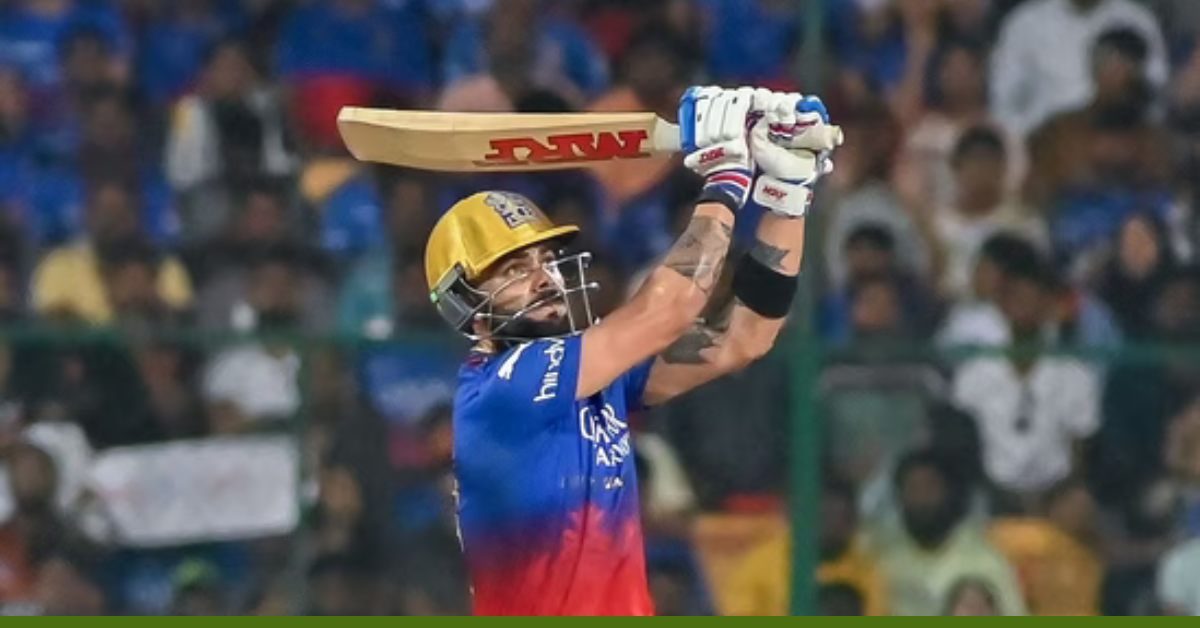The Indian Premier League (IPL) has always been a stage for electrifying cricket, featuring some of the most renowned players in the sport. However, as the league’s popularity has grown, so too have ticket prices, particularly for matches featuring iconic players such as Virat Kohli, MS Dhoni, and Rohit Sharma. These sky-high ticket prices have sparked discussion about the affordability and accessibility of the sport for fans.
Factors Influencing Ticket Prices
IPL ticket prices vary based on numerous factors, including:
- Venue: Ticket prices fluctuate depending on the location of the match. For example, tickets in Mumbai tend to be more expensive than in Mohali due to the difference in demand and audience demographics.
- Match Timing: Evening games and weekend matches tend to attract higher ticket prices due to increased demand from fans looking to enjoy cricket after work or during their time off.
- Teams Contesting: Matches featuring popular teams such as the Royal Challengers Bangalore (RCB), Chennai Super Kings (CSK), and Mumbai Indians (MI) typically command higher prices than those involving less prominent teams.
- Star Power: Players like Virat Kohli, MS Dhoni, and Rohit Sharma draw large crowds, and their participation often leads to increased ticket prices as fans are eager to watch their favorite players in action.
The Dynamic Pricing Model
Franchises have embraced a dynamic pricing model to adjust ticket prices based on demand. This approach mirrors the dynamic pricing strategy used in industries like airlines, where prices fluctuate based on demand and availability.
For instance, ticket prices at the M. Chinnaswamy Stadium in Bangalore, home to RCB, have soared due to the loyal fan base and the high demand for matches featuring players like Virat Kohli. Premium tickets for the corporate stands have reached INR 52,938 for RCB’s opening home encounter against the Punjab Kings.
On the other hand, prices at the Wankhede Stadium, home to the Mumbai Indians, remain more reasonable, with the lowest category ticket priced at INR 990 and the highest at INR 18,000. This discrepancy highlights the impact of regional demand on ticket prices.
Franchises and Ticket Pricing
The BCCI grants franchises the freedom to set ticket prices at their home venues, allowing them to manage their revenue streams effectively. Rajan Manchanda, secretary of the DDCA, noted that franchises determine their pricing strategies based on classic economic theories of demand and supply.
Kaso Viswanathan, CEO of CSK, explained that franchises must adjust their ticket prices to account for market demand and taxes. He mentioned that the franchises pay a significant portion of ticket revenue in taxes (28% GST and 25% entertainment tax), impacting their overall profits.
Challenges for Fans and Franchises
While the dynamic pricing model benefits franchises by allowing them to maximize revenue during high-demand matches, it can also create challenges for fans. High ticket prices may limit access for some fans, particularly those who cannot afford the premium seats.
Additionally, the high prices may lead to increased instances of black-market ticket sales, which further complicates the situation for franchises. Franchises may need to find a balance between maximizing revenue and ensuring accessibility for fans to maintain a strong fan base and support.
The Future of IPL Ticket Pricing
As the IPL continues to grow in popularity and attract cricket’s biggest stars, ticket prices will likely continue to fluctuate based on demand. Franchises may need to explore innovative solutions to manage pricing and ensure a fair balance between maximizing revenue and providing accessible options for fans.
For now, fans must navigate the ever-changing landscape of IPL ticket pricing, weighing their desire to watch their favorite players and teams against the cost of attending matches in person. While high prices may deter some fans, the allure of witnessing the world’s best cricket talent on the field is sure to keep many flocking to stadiums across the country.
Related posts:
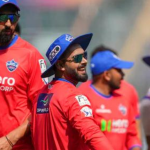 IPL 2024 match today: GT vs DC head-to-head record, stats, most runs, and most wickets list in IPL
IPL 2024 match today: GT vs DC head-to-head record, stats, most runs, and most wickets list in IPL
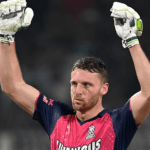 Jos Buttler, if not greater, on par with Virat Kohli, AB de Villiers, Chris Gayle among IPL GOATs
Jos Buttler, if not greater, on par with Virat Kohli, AB de Villiers, Chris Gayle among IPL GOATs
 “Most expensive player can’t be your weak link”: Irfan Pathan takes indirect dig at KKR star
“Most expensive player can’t be your weak link”: Irfan Pathan takes indirect dig at KKR star
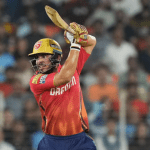 Impact Man Ashutosh Sharma: From breaking Yuvraj’s record to making IPL chance count
Impact Man Ashutosh Sharma: From breaking Yuvraj’s record to making IPL chance count
 IPL match today, RR vs RCB: Head-to-head records and numbers in Jaipur; check fantasy team, pitch report
IPL match today, RR vs RCB: Head-to-head records and numbers in Jaipur; check fantasy team, pitch report
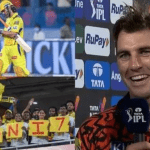 MS Dhoni’s thunderous reception from Hyderabad crowd leaves Pat Cummins dumbfounded: ‘It was loudest I’ve ever heard’
MS Dhoni’s thunderous reception from Hyderabad crowd leaves Pat Cummins dumbfounded: ‘It was loudest I’ve ever heard’
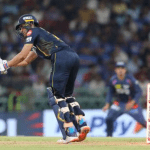 LSG vs GT, IPL 2024 Highlights: Yash Thakur decimates Gujarat’s batting with a fifer as Lucknow clinches victory
LSG vs GT, IPL 2024 Highlights: Yash Thakur decimates Gujarat’s batting with a fifer as Lucknow clinches victory
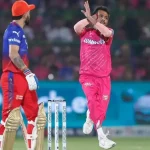 IPL 2024: Yuzvendra Chahal leads the race for Purple Cap, took so many wickets in 4 matches
IPL 2024: Yuzvendra Chahal leads the race for Purple Cap, took so many wickets in 4 matches
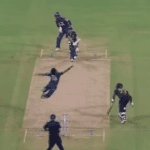 ‘One of the best catches in IPL history’: Ravi Bishnoi’s one-handed screamer during LSG vs GT sends fans into a frenzy
‘One of the best catches in IPL history’: Ravi Bishnoi’s one-handed screamer during LSG vs GT sends fans into a frenzy
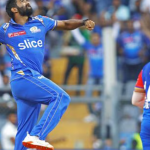 MI vs DC, IPL 2024 Highlights: Mumbai Indians open account, beat Delhi Capitals by 29 runs
MI vs DC, IPL 2024 Highlights: Mumbai Indians open account, beat Delhi Capitals by 29 runs
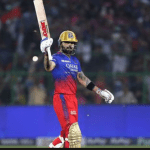 ‘Virat Kohli made a mistake in…’: Virender Sehwag’s blunt take on ‘slowest century’ of IPL history
‘Virat Kohli made a mistake in…’: Virender Sehwag’s blunt take on ‘slowest century’ of IPL history
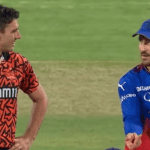 Faf du Plessis’ ‘coin flip’ gesture days after ‘toss-tampering’ theory sparks fresh debate, Cummins’ reaction unmissable
Faf du Plessis’ ‘coin flip’ gesture days after ‘toss-tampering’ theory sparks fresh debate, Cummins’ reaction unmissable
 ‘Mind is Going to Explode’: Faf du Plessis Has Nowhere to Hide After RCB’s 6th Defeat in IPL 2024
‘Mind is Going to Explode’: Faf du Plessis Has Nowhere to Hide After RCB’s 6th Defeat in IPL 2024
 Record 549 runs scored in Hyderabad-Bengaluru match: RCB made the highest score of IPL in the second innings, highest number of boundaries were hit; Records
Record 549 runs scored in Hyderabad-Bengaluru match: RCB made the highest score of IPL in the second innings, highest number of boundaries were hit; Records
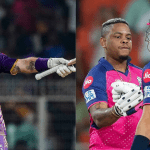 KKR vs RR IPL 2024: Kolkata and Rajasthan; top-performing players so far – Riyan Parag, Sunil Narine and more
KKR vs RR IPL 2024: Kolkata and Rajasthan; top-performing players so far – Riyan Parag, Sunil Narine and more
